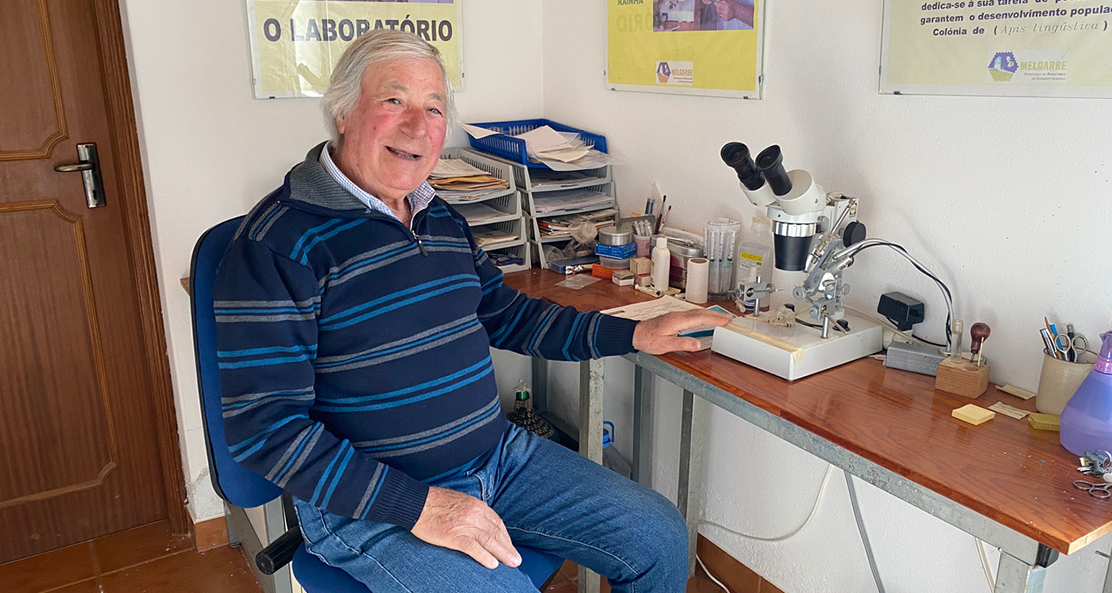Now is a great time of year to see bees and butterflies in gardens, busily in search of nectar.
I love watching them flitting from flower to flower, knowing they are important for our environment. Bees provide essential pollination for 80% of the vegetables and fruit that we eat. However, disturbing news keeps emerging about the global decline of the bee population and the impact it’s having on our lives.
I head to a Quinta near Burgau to speak to a person who knows all about bees. José Vicente has been using artificial insemination to create queen bees for over 40 years. I encounter an energetic 80-year-old, clearly eager to share his vast experiences. Might his youthfulness have something to do with working with bees, I wonder?
How did it all begin? Actually, in Sweden, he tells me. “At the age of 25, I moved there to work in a shipyard and ended up staying for more than 30 years,” he explains. He enjoyed the hospitality and generosity of people and marvelled at their close connection with nature. It was a back injury that brought him into contact with bees. “There was a belief that if you get stung, the pain will be eased. I visited a beekeeper and stood in front of a hive for the bees to sting me,” he laughs. He isn’t too sure whether it worked or not, but there is no doubt that it was love at first sting!
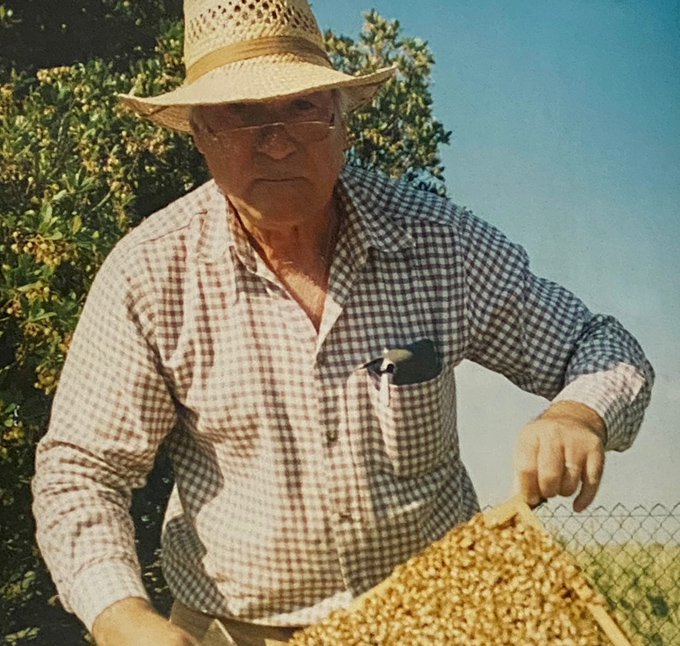
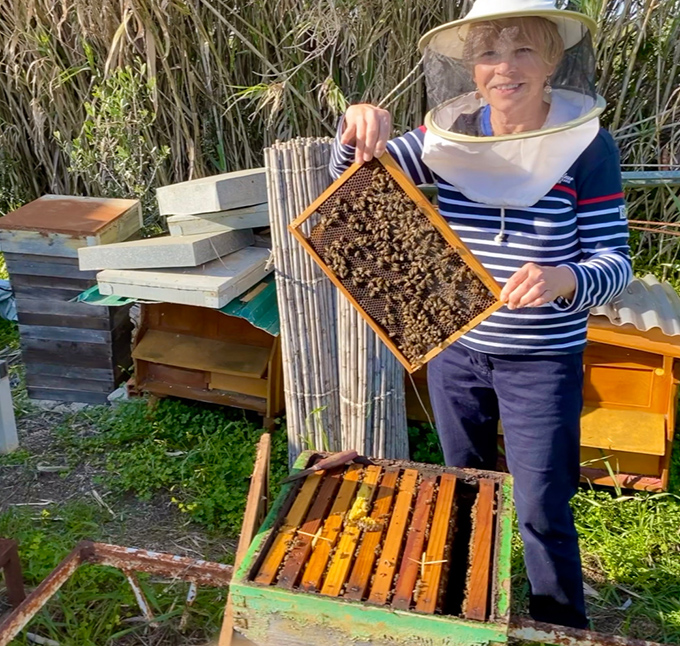
With his newly acquired hives, he started breeding bees. He was fascinated by the Buckfast variety created by Brother Adam at Buckfast Abbey in Devon, UK in the early 20th century. Based on extensive crossbreeding, a new hardy, productive and gentle species was developed. José met Brother Adam in Sweden several times and proudly shows me one of his books, duly signed.
José has been breeding Buckfast queens ever since and brought the practice to the Algarve over two decades ago. He uses a range of very specialised equipment, including a large microscope and incubators, to collect and deliver semen from the drones and anaesthetise and immobilise the queen. Everything is recorded meticulously.
As Portugal already has hundreds of species of bees, why is it necessary to introduce a new one? Bees in Portugal are hybrid varieties, with the black Apis mellifera iberiensis being the most common. Buckfast bees are far more docile and easier to manage. To prove the point, José takes me outside to meet the bees. Only equipped with a netted hat, I’m able to handle the frame buzzing with bees with my bare hands – quite a thrill.
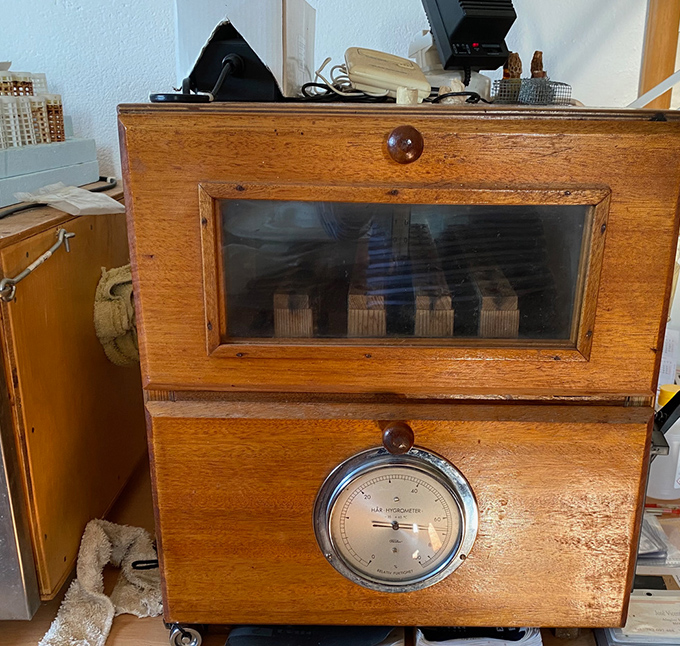
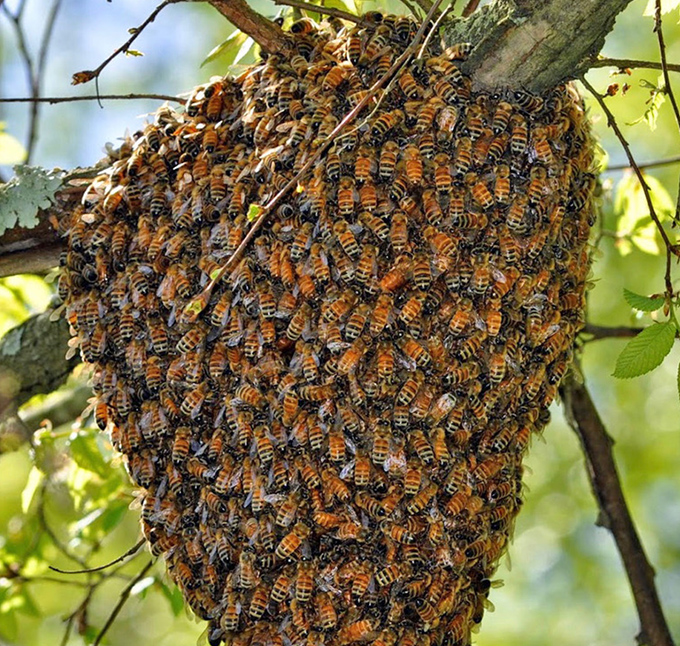
José is concerned about the disappearance of bees worldwide. Although the situation in Portugal is more favourable because of smaller-scale agricultural production using less pesticide, he thinks we must all do our bit. “The great gift of bees is the honey, but it is their pollination work that is crucial – without it, we are lost,” he maintains.
What can we do? Why not select plants for your garden that attract bees? On José’s recommendation, I immediately send off for phacelia seeds. They are easy to grow and are adored by bees. Many other plants are equally attractive, such as thyme, marjoram, coriander, lavender, lantana, and aster, to name just a few.
This the time for bees to swarm. What should you do if they settle near your house?
Chris Day, from Cutting Edge Landscapes based in Lagos, tells me that bees are harmless as they are in swarm mode and urges people never to attempt to remove the nest or spray with pesticide.
Call the local Bombeiros who can advise or contact Chris directly on +351 968 453 970.
He will remove the swarm and give them a new home. His services are free as his priority is to preserve the bees in the region.
